Passport to Self-Knowledge
On self-portraits and the dangers of introspection
My passport is up for renewal this year. Technically, it doesn't expire until October, but given how long it can take to process and the fact that you need six months of validity to travel to Europe, I decided to apply well in advance.
Ten years ago, I went to a photo booth to get a portrait and then manually filled out a form.1 Nowadays, you can do it all online. You can even submit a photo you take at home. As someone interested in photography, I was curious to try, even if the only audience for such a photo are jaded border guards.
There is a long list of requirements on the government website: the photo shouldn’t have any shadows, your eyes should be clear, and the only acceptable headwear is religious. I did my best and clicked submit.
The automated check rated it as "Poor," explaining that “the lighting is too dark or uneven” and that I should try “standing where there’s more natural light.” Alas, I live in Glasgow—a city of perpetual gloom.
Fortunately, we own a SAD lamp that gives some extra light and, after a couple more failed attempts, Laura managed to take a photo that the website grudgingly said was "Good". Now, I just need to wait and see if it proves acceptable to the humans who review the application.
Having a deadline for getting a passport photo was extremely appealing to me. I'd been wanting to get a new profile picture for years but kept putting it off. All my avatars are hopelessly out of date, yet getting a new one meant deciding how I wanted to present myself to the world.
“Become who you are!" wrote Nietzsche … but that's easier said than done.2 Am I a long-haired or short-haired person? Should I have a beard or go clean-shaven? These were all questions that preoccupied me.
"Know Thyself" were the words written above the Temple of Apollo in ancient Delphi. Apparently, this originally meant that you should know your limits. Over time, especially since the psychoanalytic turn, “know thyself” turned into an imperative to introspect. We now have a culture obsessed with trauma, therapy, and identity … perhaps to an unhealthy degree.
I've always been struck by film director Werner Herzog's line that he is so little interested in himself that he doesn't even know the colour of his eyes.3 I interpreted this as saying that there are far more interesting stories out in the world than the ones you experience intimately. Elsewhere, he implies that avoiding therapy is about allowing mystery:4
I loathe psychology as one of the major faults of our civilization nowadays. There's something not right about this amount of introspection. I can only give you a metaphor: When you move into an apartment, you cannot start to illuminate every last corner with neon light. If there are no dark corners or hidden niches, your house becomes uninhabitable. Human beings who are trying to self-reflect and explore their innermost being to the last corner become uninhabitable people.
The more you define yourself, the less you know who you are.5 Definition, that assertion of "I am X", comes up against the inherent mutability of existence. It's like a cardboard cutout of the self that dissolves in the rain of life. For artists, the defined self is deadening.
My favourite sequence of self-portraits is those of Rembrandt. They are spirited, intense, and deeply moving. From confident youth to the disappointments of old age, he never shied away from confronting change.

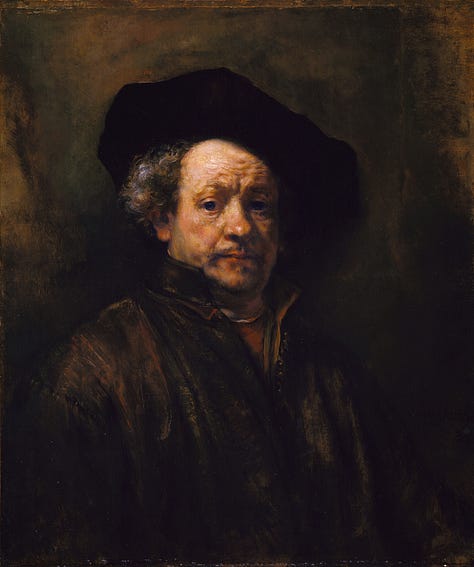
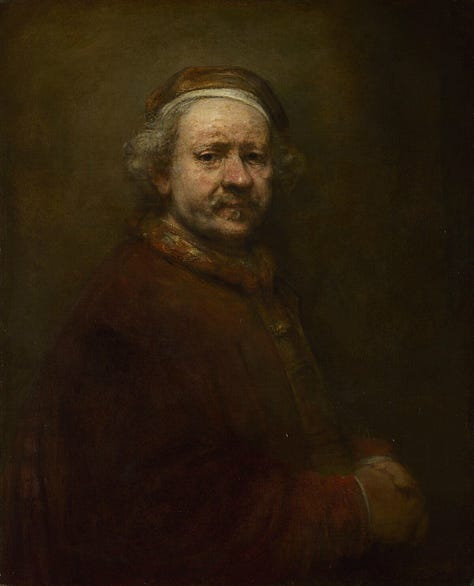
But who is the Rembrandt of photography? Is there any photographer who has made introspective self-portraits that show the artist across time?
When I think of photographic self-portraits I think of female artists like Cindy Sherman, Francesca Woodman, and Jo Spence. Although famous for their self-portraits, they tend to dramatise the self. Sherman always performs a role. Francesca Woodman turns herself into an angel. Even Spence's photo therapy is often playful rather than just raw.

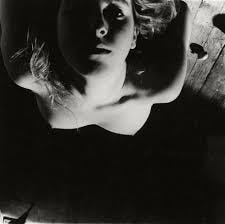
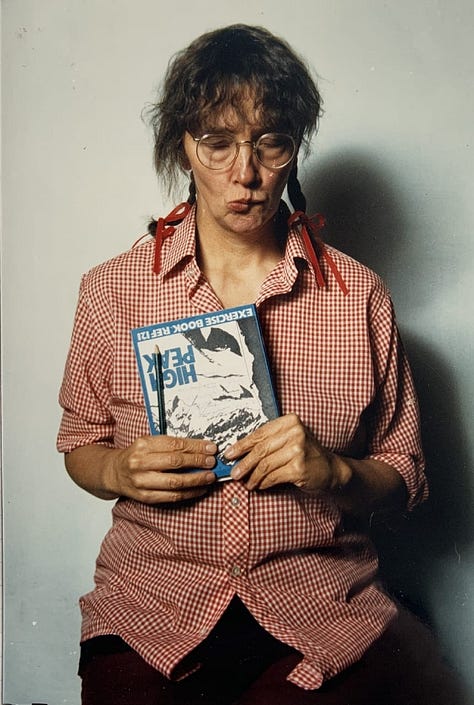
Maybe we get closer to the truth when we wear a mask. Or maybe we just don't want to be judged. With a portrait, everything can be scrutinised: your clothes, your attractiveness, your vanity. Most photographers I know prefer to examine others than examine themselves.
Last Saturday, I went out with the camera and spotted a gang of street photographers looking for things to capture. All of them were bearded and anonymous. It was as if by focusing on others, photographers ignore themselves … at least, I do.
While I was out, I chatted with Daniel Nilson, a Brazilian photographer who was scouting locations for some client portraits. We hung out and he captured me in all my scruffiness.
One of the photographers I know who always dresses well is Alan Dimmick. He took my photo a few times last year, including one showing me the messiness of the back of my head.
I told him that I didn’t care because I didn’t have to look at it, but I'm starting to think that maybe I should keep up at least some minimal standards. I did, for instance, shave for my passport photo.
What do you think about self-portraits and introspection? Let me know in the comments or send me a direct message.
In the pre-digital era, a photo booth would take four separate photos and you'd pray that one would be okay. With digital photo booths, you get the same photo four times and are given multiple (but not infinite) opportunities to get a good one.
I admire people like Quentin Crisp and Steve Jobs who commit to a look and stick to it but lack their saintly discipline.
From 2012: "When I look in the mirror I see... I do not see myself, I do not want to see myself. I only know the colour of my eyes from my passport.”
David Lynch agreed. At his first therapy session, Lynch asked the therapist "Could this process that we’re going to go through affect creativity?" The therapist replied, "I have to be honest with you, it could”. Lynch shook the man’s hand, walked right back out the door, and never went back.
As Will Storr says in Selfie: How We Became So Self-Obsessed and What It's Doing to Us:
There is no authentic core to us, no essential, happy and perfect version of the self that can be exposed by stripping back the repressing expectations of society. In fact, the self is modular. We’re made up of many competing selves, all of which are equally ‘us’, and which fight for dominance.







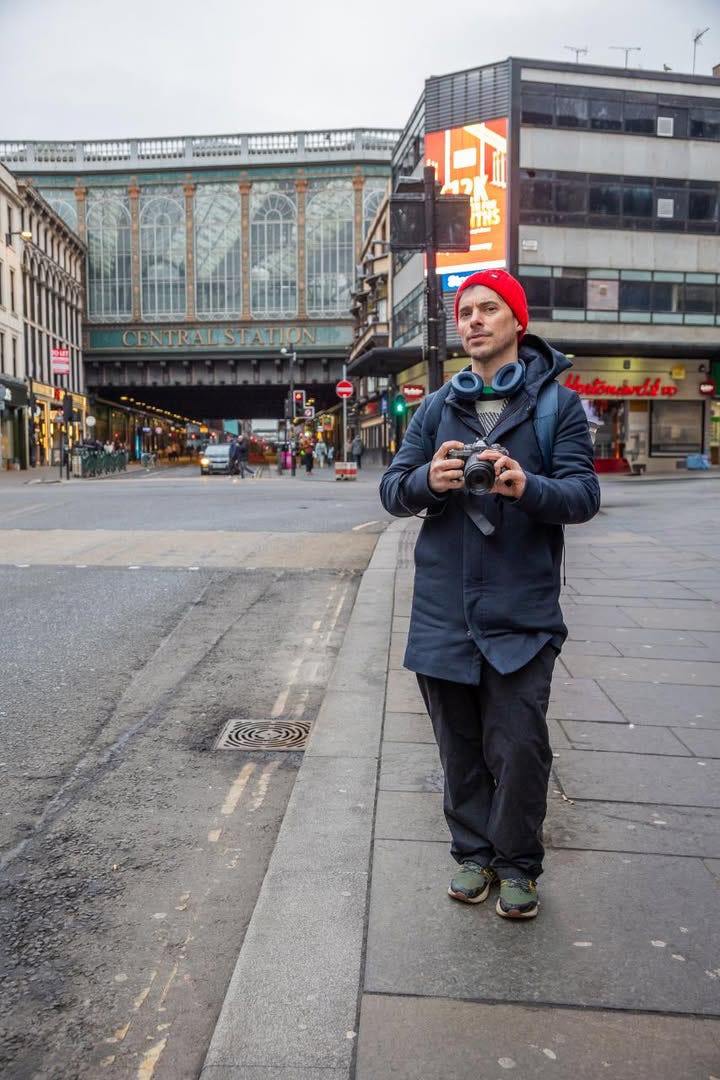
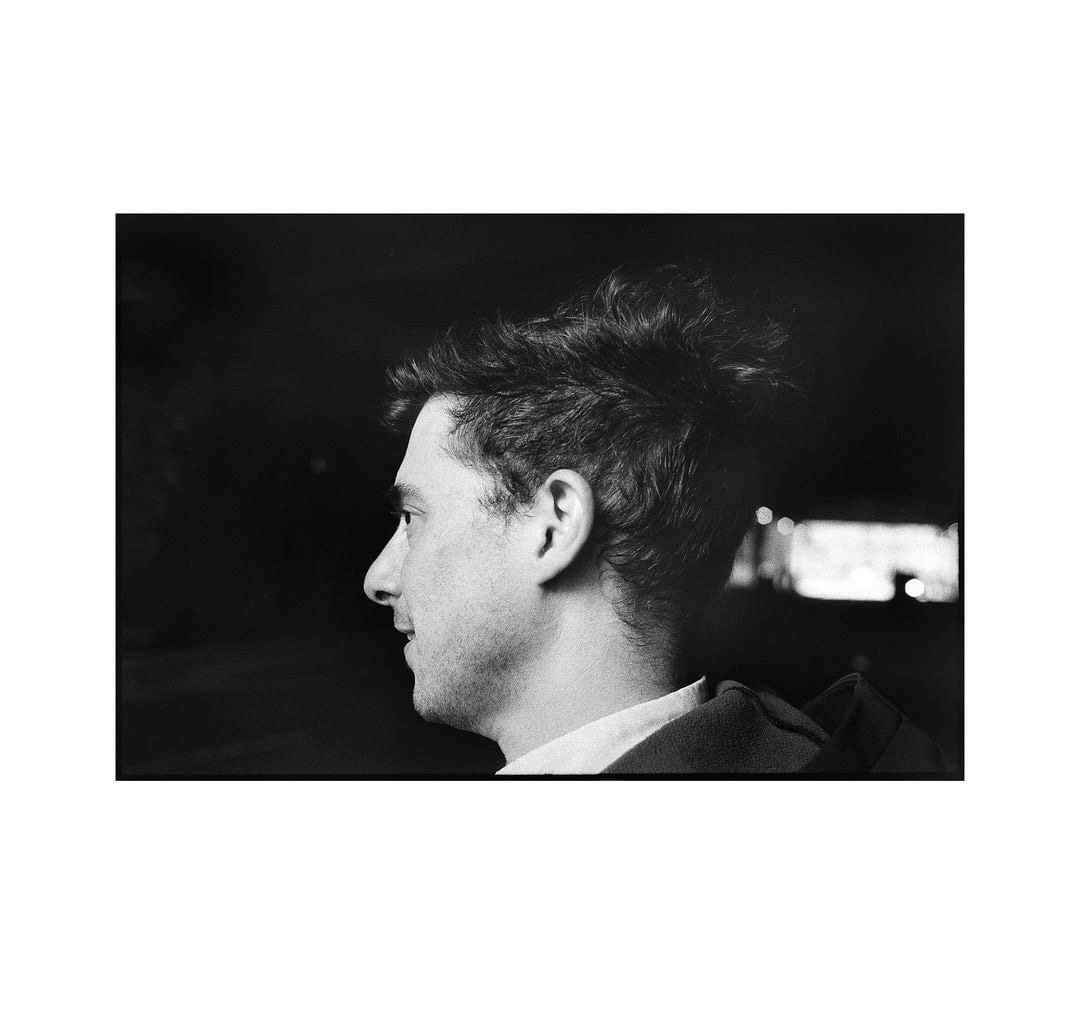
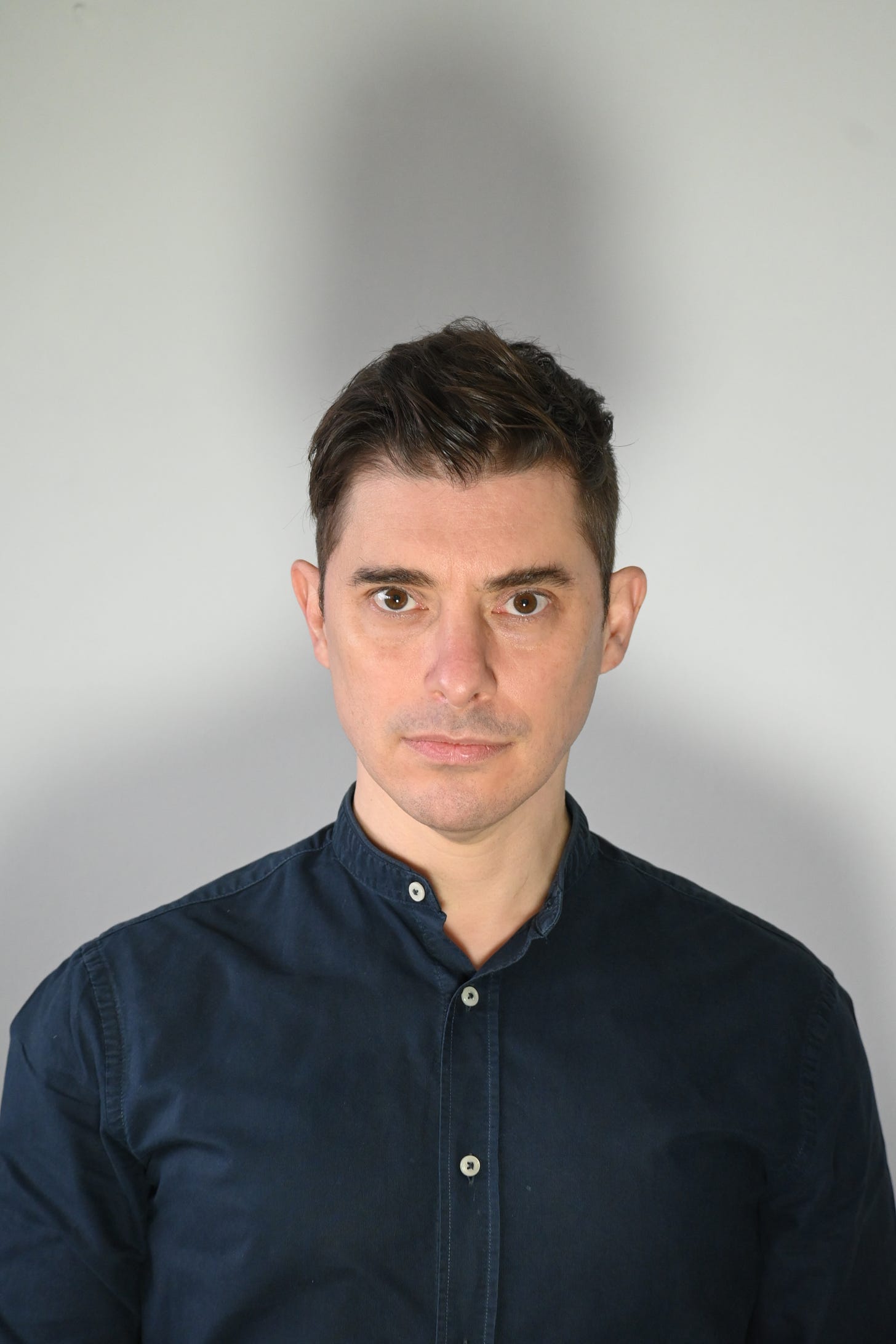
.... when you start to look like your passport photograph, it is time to go see a surgeon! They are the worst! Always....
Great post.
Nice passport photo. The soft underlighting may suggest a hint of lawlessness (ex kgb ) to a passport inspector unnaccustomed in photo lighting techniques. This may lead to more strip searches. Keep them on their toes. Good luck!